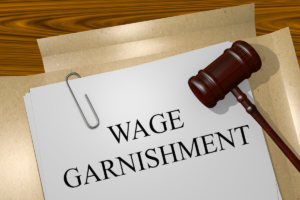
Wage garnishment is a legal procedure where a portion of an individual’s earnings is deducted an employer to satisfy a debt. This article delves into the financial ramifications of wage garnishment, explores the rights and obligations of individuals subject to such orders, and provides insight into the Wage Garnishment Law to help individuals navigate this challenging financial situation.
Understanding Wage Garnishment
Wage garnishment occurs when a court orders an employer to withhold a specified amount from an employee’s paycheck to pay off a debt. Common reasons for wage garnishment include unpaid child support, alimony, tax debts, and judgments from civil lawsuits. The amount garnished is determined federal and state laws, which set limits on the percentage of an individual’s wages that can be taken.
Financial Impact of Wage Garnishment
- Reduction in Disposable Income: The immediate impact of wage garnishment is a reduction in take-home pay. This reduction can strain an individual’s budget, making it challenging to cover essential living expenses such as rent, utilities, and groceries. The extent of the financial strain depends on the amount garnished and the individual’s overall financial situation.
- Potential for Increased Debt: When wage garnishment is in place, individuals may struggle to meet their other financial obligations. This strain can lead to additional debts, as individuals may rely on credit cards or loans to cover their expenses. As debt accumulates, the individual’s financial stability may further deteriorate.
- Impact on Credit Score: Although wage garnishment itself does not directly affect credit scores, the underlying debt that led to the garnishment may have already damaged the individual’s credit history. Moreover, if the financial strain from garnishment results in missed payments on other debts, it can negatively impact the credit score.
Understanding Your Rights Under Wage Garnishment Law
- Notification Requirements: Under the Wage Garnishment Law, creditors are required to notify individuals before garnishment begins. This notice typically includes information about the debt, the amount to be garnished, and instructions on how to contest the garnishment if the individual believes it is incorrect or unjust.
- Limits on Garnishment Amount: Federal law sets limits on the amount that can be garnished from wages. Generally, garnishment cannot exceed 25% of an individual’s disposable earnings or the amount which weekly earnings exceed 30 times the federal minimum wage, whichever is less. State laws may offer additional protections and limits.
- Exemptions and Protections: Certain types of income, such as Social Security benefits, disability benefits, and retirement pensions, may be exempt from garnishment. Additionally, individuals facing financial hardship can often request a hearing to challenge the garnishment or seek a reduction based on their financial situation.
- Employer Obligations: Employers are legally obligated to comply with wage garnishment orders. They must withhold the specified amount from the employee’s wages and remit it to the creditor. Employers are also prohibited from retaliating against employees who are subject to garnishment.
Steps to Take If You Are Facing Wage Garnishment
- Review the Garnishment Order: Carefully review the garnishment order and ensure that all details are accurate. Check for errors in the amount to be garnished or the validity of the debt. If discrepancies are found, address them promptly with the creditor or the court.
- Seek Legal Advice: Consulting with a financial advisor or attorney who specializes in wage garnishment and debt relief can provide valuable guidance. Legal professionals can help individuals understand their rights, explore potential exemptions, and navigate the complexities of the Wage Garnishment Law.
- Negotiate with Creditors: In some cases, it may be possible to negotiate a settlement or payment plan with creditors to avoid or reduce wage garnishment. Open communication with creditors and a willingness to work out a solution can sometimes lead to more favorable terms.
- Explore Debt Relief Options: For individuals facing significant financial difficulty, exploring debt relief options such as bankruptcy or debt consolidation may be beneficial. These options can potentially alleviate the financial burden and offer a path to regaining financial stability.
Conclusion
Wage garnishment can have a profound impact on an individual’s finances, affecting disposable income, debt levels, and overall financial well-being. Understanding the provisions of the Wage Garnishment Law, including your rights and obligations, is crucial in managing this situation effectively. By taking proactive steps, seeking professional advice, and exploring potential solutions, individuals can navigate the challenges of wage garnishment and work towards improving their financial stability.